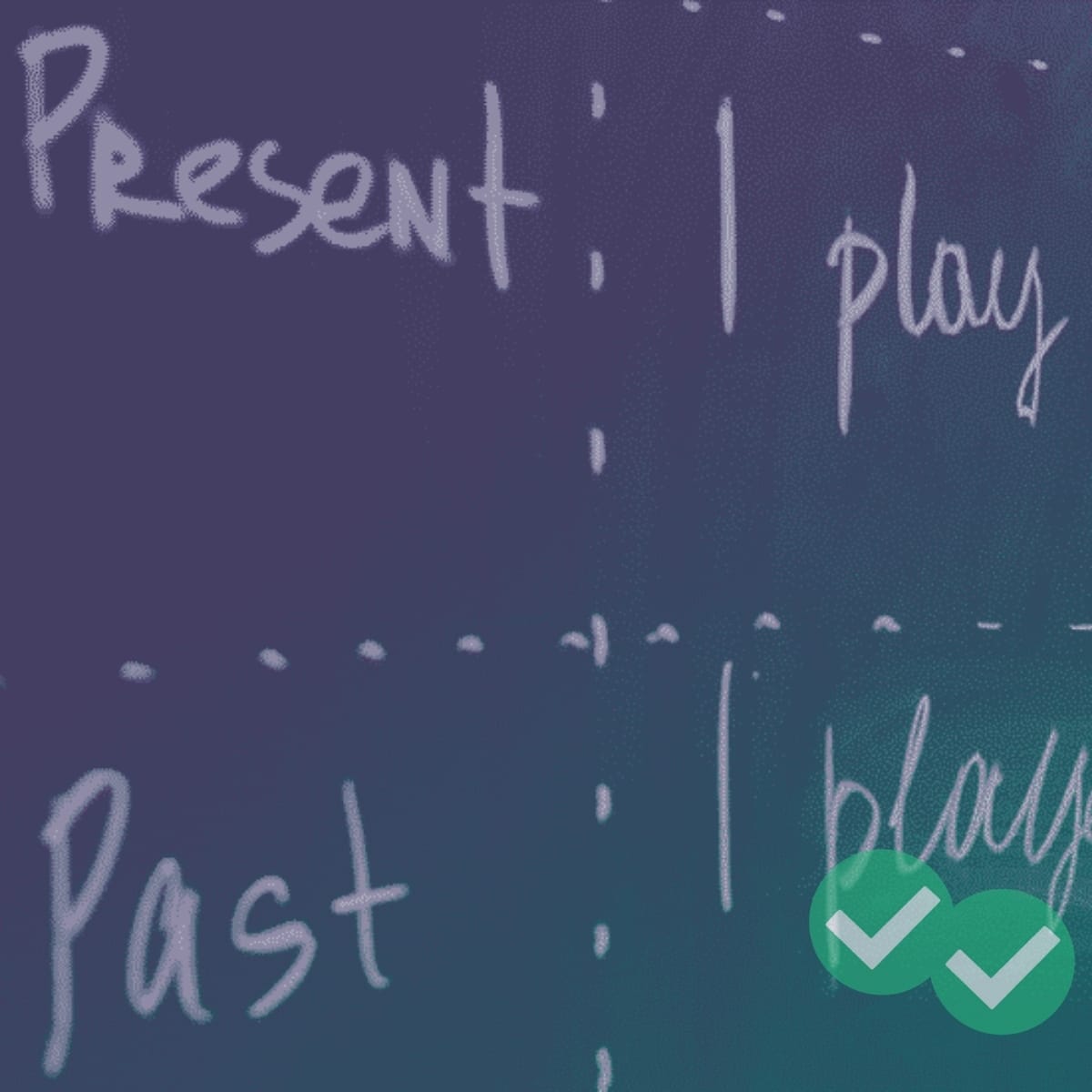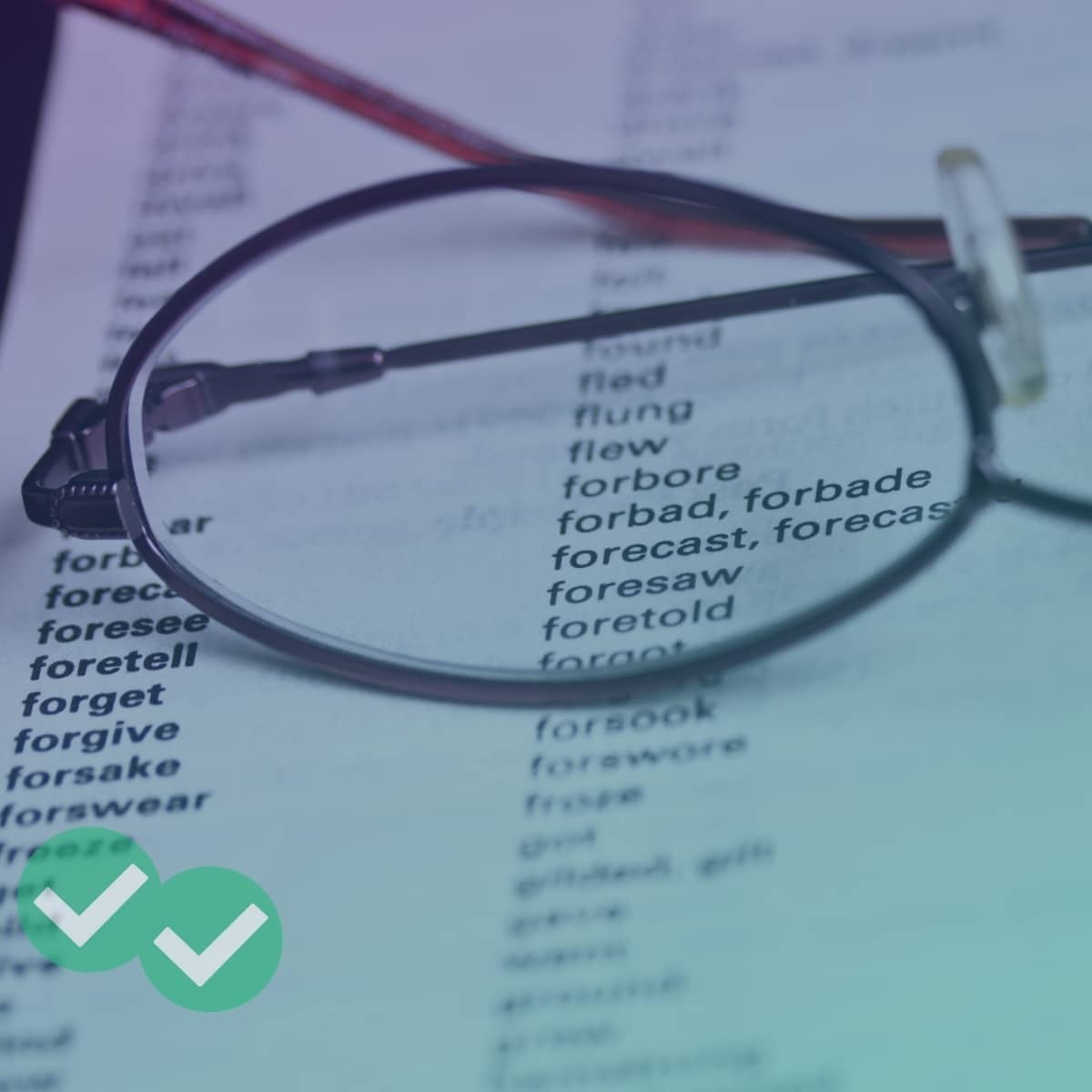
In this article, we’ll dissect the future simple tense in every form and provide some common applications. We’ve included several tables for your reference. And, for a breakdown of verb tenses in every form, visit our Verb Tenses article.
Forming the Future Simple Tense (with Tables)
Quick Reference Table: The Future Simple Tense in All forms
KEY
V → Root Verb
| The Future Simple Tense | Will | To be + Going to |
| + | Will + V
I will call tomorrow. |
Am/Is/Are + going to + V
I am going to walk the dog tomorrow. He is going to break the record.. They are going to run next week.. |
| – | Will not/Won’t + V
I won’t call tomorrow. |
Am not/Is not/Are not + subject + going to + V
I am not going to walk the dog tomorrow. He is not going to break the record. They are not going to run next week. |
| ? | Will + subject + V
Will you call tomorrow? |
Am/Is/Are + Subject + going to + V
Am I going to think it? Is she going to break the record? Are you going to run next week? |
The formula for using the future simple tense is: will + verb [root form] OR [am, is, are] + going to + verb [root form].
It’s important to note that the ‘going to’ version of the tense is more casual and wouldn’t be used in formal situations. However, you will hear it often in common speech.
The beauty of the tense is that it doesn’t matter what person you’re speaking in. It also doesn’t matter whether the subject is singular or plural. You always use the root form of the verb.
Examples:
- I will go to the store later today.
- We are going to find your keys.
- She will paint your picture next week.
- Jessie is going to leave your book by the door.
- Harry is going to purchase a new car next year.
Making It Negative
To make a future simple verb negative, use this formula: will not/won’t + verb [root form] OR [am, is, are] + not + going to + verb [root form].
Examples:
- I will not go there anymore.
- David isn’t going to ride with us.
- Jerry won’t testify in court next week.
- They aren’t going to see us next month.
Asking a Question
To ask a question in the future simple, use the formula: Will + subject + verb [root form] OR
Am/Is/Are + Subject + going to + verb [root form]
Examples:
- Are you going to run today?
- Will he testify?
- Is she going to leave tomorrow?
- Am I going to see you next week?
When To Use the Future Simple Tense
This section includes four common uses for the tense with examples for your reference. The will and am/is/are going to constructions could be used almost interchangeably in many situations.
Can you think of other situations where you would use the future simple tense? Leave a comment below!
Use #1
When describing an action you intend to volunteer for.
Examples:
- I’ll send a letter when I arrive.
- We’re going to help you move tomorrow.
- Will you help me do my homework?
- She’s not going to do it for us.
Use #2
When speaking about a promise.
Examples:
- I will be there at 9.
- He’ll make sure you arrive on time.
- Betty won’t tell him about your crush.
- Is he going to tell her about our little secret?
Use #3
When talking about future plans.
Examples:
- I’m going to take a bus when I go.
- Will Jenny fix the computer for us when she comes back?
- I’m not going to see her next week.
- The ferry will arrive at 10 p.m.
Use #4
When you want to express a prediction
Examples:
- Next year is going to be the best year ever!
- We’re going to celebrate when we win the big game.
- He’s going to win many awards throughout his career.
- Jenny will be the next Meryl Streep.
Understanding the future simple tense will help you communicate effectively and express hopes and desires for the future.




Leave a Reply